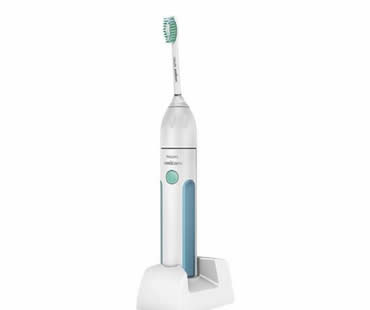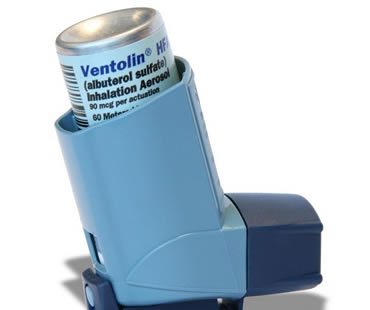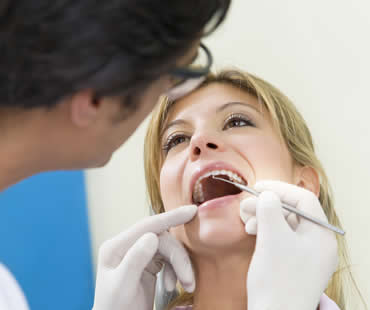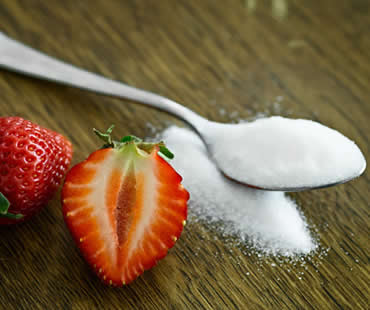
Dentists say that electric toothbrushes really can make a difference in your ability to clean your teeth and gums. However, not all models provide the same amount of benefits. There are some important things to know about making your choice so that you purchase the best toothbrush for your needs. Here are some guidelines to consider when selecting an electric toothbrush.
Toothbrush heads
If several people will be using the toothbrush, look for one with assorted head sizes. Adults and children need different sizes of heads for the best results. Also, make sure you choose a model with replaceable toothbrush heads. This will save you money in the long run because you’re only discarding old heads, instead of throwing away entire electric toothbrushes.
Batteries
Your electric toothbrush needs a rechargeable battery so that you’re not investing money in new batteries all the time. Also, your fully charged toothbrush should last over a week. You shouldn’t have to charge the toothbrush all the time, just like you shouldn’t have to with other electric items like your laptop.
Spinning
Some electric toothbrushes offer a special type of head that spins all the way around, which allows you to clean areas that other brushes have a hard time reaching. A spinning brush may cost a bit more, but it really does a great job of helping to fight plaque and prevent gum disease.
Warranty
Look for a toothbrush with a warranty, especially when you’re buying an expensive model. That way if something unexpected happens, it might be covered under the warranty instead of having to purchase a whole new brush.
General and family dentist in Longview

A number of serious health problems like cancer are linked to smoking, but your oral health is also at risk from using tobacco. Your teeth can be severely stained, turning them yellow or brown, and your lips can become darker too. Smokers have a higher risk of tooth decay, and bad breath is nearly inevitable. The negative outcomes of smoking continue to worsen the longer you keep doing it, so it’s highly advisable to kick the habit. However, as most smokers can attest, giving it up is not easy. Here are some tips that may help you quit smoking.
Make a list
Create a list of the reasons you’d like to quit smoking, and look at it often to remind you of your goals and the benefits you’ll achieve. These may include things like improving your overall health, restoring your smile, making loved ones proud of you, and even saving money.
Choose a date
Select a date on the calendar to stop, and stick to it. Having a concrete target can help you focus on the challenge ahead.
Ask for help
The support and encouragement from others can be a huge part of quitting smoking. Tell your family and friends about your goal, and allow them to play a part in accomplishing it.
Occupy your mouth
Sucking on sugarless candy or mints can keep your mouth busy, so you’ll be less inclined to put a cigarette in it. Chewing sugar-free gum is another great remedy for the urge to light up.
Keep busy
Try to find things to occupy your time and mind so that you aren’t constantly thinking about smoking. Take up a new hobby that involves both your mind and your hands so that you are busy with other, more beneficial, activities than puffing on a cigarette.
Schedule your appointment at our Longview dental office

About 20 million Americans have been diagnosed with asthma, a long-term lung disease that causes swelling and narrowing of the airways. The condition has been linked to oral health, with patients having increased risk for cavities, gum problems, and bad breath.
One of the main culprits negatively impacting an asthma patient’s oral health is the medication required to treat the condition. Some medicines, such as corticosteroids, decrease the flow of saliva. This leads to dry mouth, which in turn can increase cavities and bad breath. Dry mouth is worsened by the fact that many asthma patients breathe through their mouth. Inhaled steroids can also increase the risk of thrush, which is caused by an overgrowth of yeast in the mouth.
Here are some tips for keeping your mouth safe while still controlling your asthma:
- Make sure your dentist is aware of your condition, as well as all medications that you are taking.
- Rinse your mouth with water or a fluoride mouthwash after using your inhaler.
- Consider using a spacer device with your inhaler, which will spray the medication directly into your throat and avoid some of the direct risks to your mouth.
- Bring your inhaler with you to dentist appointments, both to show it to your dentist and to have your medication available in case you experience an asthma attack at the office.
- Ask your dentist if more frequent dental visits are recommended in your case.
- Inquire about adding fluoride supplements to your routine, especially in areas where the water is not fluoridated.
- Maintain good brushing and flossing habits.
We look forward to seeing you in our Longview dental office

Brush and brush and brush, but you probably will not be able to get rid of all the plaque on your teeth. Even with regular brushing, some amount of plaque will build up on your teeth and turn into a hard substance called tartar. It simply can’t be removed without professional help.
What is tartar?
Tartar is a hard, yellow or brown deposit that forms on your teeth both above and below your gum line. Any food particles remaining in your mouth after eating will breed bacteria, which creates a thin film on your teeth called plaque. Any plaque that isn’t removed with brushing and flossing will harden to create tartar.
Is it harmful?
Tartar makes the surface of your teeth rough, which attracts food particles and therefore accelerates tartar formation. If you allow tartar to continue building up, your teeth will become discolored and your gums will be at risk. You will likely develop gingivitis, in which your gums become swollen and red. They will bleed easily and become painful, and eventually can lead to tooth loss. Advanced gum disease is even linked to higher risks of stroke, heart attack, and lung disease.
How is it removed?
Tartar is too hard and stubborn to be removed with regular brushing. The only effective way to eliminate tartar is by visiting your dentist and having it removed using professional equipment. This procedure is commonly called scaling.
Can I prevent tartar buildup?
Regular brushing at least twice daily with a fluoride toothpaste can help reduce tartar formation. Unfortunately, even with proper dental hygiene, plaque buildup is inevitable over time and will become tartar. Schedule regular checkups with your dentist to have professional cleanings performed.
If you live in the Longview area contact us today

Most dentists recommend that patients replace their toothbrushes every three to four months. About this time, the bristles start to wear out or become frayed, which makes the tool less effective. You should also replace your toothbrush right away if you have been sick so that you don’t re-infect yourself.
Once you are done with the toothbrush, you don’t have to immediately toss it in the trash. These creative opportunities will allow you to put that old toothbrush to good use.
Dust the keyboard
The precision of the bristles makes it a cinch to get between the keys.
Eliminate stains
If you get spots on your carpet or upholstery, an old toothbrush will enable you to really scrub the soiled area and remove the stain.
Touch up your roots
For those who dye their own hair, an old toothbrush is the perfect tool for applying color to specific areas.
Dislodge dirt from under your nails
Gardening will help your plants grow, but will also make your manicure look less than appealing. With an old toothbrush, you can say good-bye to grimy nails.
Polish jewelry
To make your favorite pieces sparkle, use an old toothbrush and a tab of toothpaste to restore their beauty.
Clean bike chains
If you don’t want to look like a mechanic after taking grease off the chains, you can grab an old toothbrush and easily finish the job.
Remove silk strings off ears of corn
Before boiling corn, wipe the ears with an old toothbrush to eliminate the corn silk and keep it out of your teeth.
We treat patients from Longview and the surrounding area

You may already know that consuming sugar brings health risks with it. It can contribute to obesity, diabetes, and heart disease, but it can also harm your teeth and gums. Even if you avoid desserts and sugary treats, you may be consuming more sugar than you realize. You should be aware that sugar is hidden in foods that you may not have considered.
Since the sweetened taste of sugar entices many people, manufacturers tend to add sugar to just about anything. Examples include crackers, condiments, salad dressing, peanut butter, yogurt, sauces, and protein bars. Manufacturers also list sugar on food labels under other names to trick people. Some alternate names for sugar are sucrose, dextrose, maltose, and molasses. Another hidden ingredient to avoid is high fructose corn syrup.
How can you avoid sugar if it’s lurking in the foods you enjoy? Here are some helpful hints in limiting your sugar intake:
- Eat whole food instead of processed food. Vegetables, fruits, and nuts are some other choices that will fill you up without the added sugar.
- Look for products that are sugarless or don’t have added sugars. Even foods labeled “low sugar” may contain more than you’d like.
- Drink sugarless beverages that won’t flood your mouth with sugar. Sodas, sweetened juices, and sweetened coffee provide lots of sugar and calories. Water is always an ideal choice to quench your thirst.
- Steer clear of artificial sweeteners, which don’t fill you up and leave you craving more sweets.
- Give yourself time to get used to having less sugar in your diet. Foods may taste less satisfying as you adjust, but you’ll get accustomed to the flavors that foods provide without the extra sweetness.
If you need a dentist in Longview contact us today









